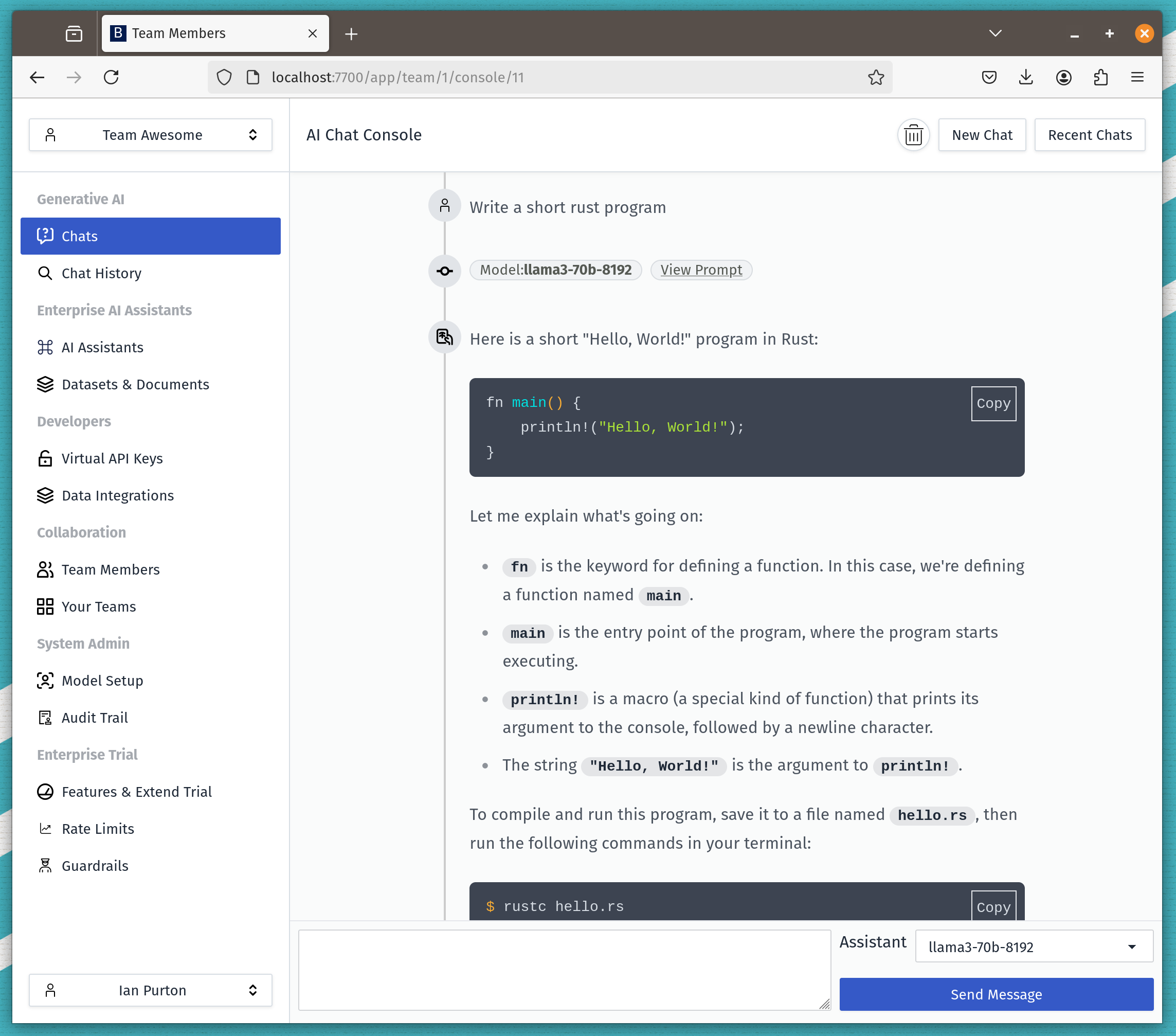Bionic Integration with Jupyter

Calling Local LLMs for Data Scientists. Access any LLM without writing a provider
While it couldn’t be said all, it can be said with a fair degree of certainty that a large percentage of data scientists the world over use and maybe even love Jupyter Notebook, running either locally or remotely. It’s an environment they feel comfortable in. You can even call LLMs directly from within your Jupyter notebook via the use of an extension called jupyter_ai. But what about all the data scientists working at any of those companies that have banned the use of publicly hosted LLMs such as ChatGPT? Mainly for security and cost reasons.
Step forward Bionic. Bionic provides a way to run generative AI on premise without the security and cost concerns of using publicly hosted LLMs. Now why shouldn’t those same data scientists have access to these same locally deployed LLMs for use from within Jupyter.
JupyterAI is built upon langchain and comes with a number of provider classes allowing access to several different remote LLMs. You can even extend JupyterAI and write your own provider. That all sounds like a little bit too much when there is a much simpler answer.
Bionic provides an API that is an OpenAI compatible interface allowing a standard interface to any model registered within Bionic, be it local or remote.
Bionic allows you to create an API key that is directly associated with an LLM. The first step thus is to create your own Bionic API key

Since Bionic’s API is OpenAI compatible we can cheat and use an existing provider from within Jupyter AI, in fact we can use any that are OpenAI compatible.
First we need to set a couple of environment parameters.
OPENAI_API_KEY to the key generated in Bionic, and
OPENAI_API_BASE to the address of our locally running version of Bionic

And that is all. We can now start to call our LLM using the %%ai magic

Since Bionic allows you to register multiple LLMs we can use multiple different LLMs within the notebook merely by updating the OPENAI_API_KEY value.
One of the other advantages of using Bionic is that the API key relates to a prompt that relates to a dataset, meaning you can use RAG directly from within your notebook. Here is an example of RAG after I had uploaded The Bank of England’s Annual Report and Accounts published earlier in 2023.

Bionic
Bionic provides a way to run generative AI on premise for the 1000's of companies that have banned ChatGPT due to security and cost concerns.
We do this in 4 ways:
- A user interface to run code and text generation via open source large language models
- An API to give data scientists and engineers the ability to innovate new solutions on premise
- No code RAG pipelines so teams can quickly test new RAG use cases without the need for skilled AI engineers
- An audit trail to ensure LLM resources are securely shared between teams and see who is using what and where

